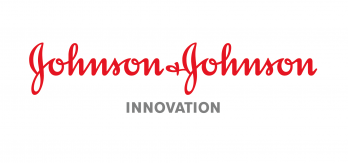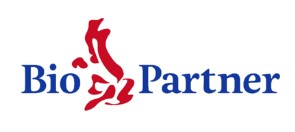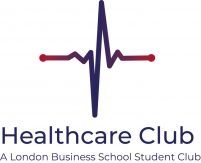Site
Select your branch
Healthcare 2.0 – How AI is revolutionising healthcare
Wednesday, September 27th 2023
Add to calendar18:00 – 22:00 (GMT)
Hallam Conference Centre, 44 Hallam Street, London, W1W 6JJ
View mapDo you want to attend? Get your ticket!
Register NowDescription
Discover the future of healthcare by joining us at Healthcare 2.0 - the premier healthcare conference for industry leaders, innovators, and entrepreneurs.
There is no doubt that change is in the air, everywhere you look an AI-driven company is setting out to disrupt drug discovery, diagnostics, digital health…the list goes on.
The possibilities seem endless and the vision of a streamlined, effective and intelligent healthcare industry seems to be within reach. What will this step change in the industry truly look like? What are the most pertinent challenges yet to be tackled before we can get there and how do we solve them? How will we integrate and implement all of these innovative solutions to realise this healthcare revolution?
Join us at Healthcare 2.0 to hear from entrepreneurs, policymakers and subject experts addressing all of these issues and engaging with each other to spark new ideas, connections and opportunities to transform the healthcare industry.
AI in Healthcare: an NHS perspective
AI has the potential to revolutionise the way we treat patients. However, the extent to which this revolution can be realised largely depends on the technology's integration into the NHS. To this end, we'll be hearing from 5 influential NHS leaders to discuss what the future of healthcare looks like in an AI-driven world.
Panel 1: Research and Development
AI based research vs clinical reality - will AI deliver on the clinical promise?
The public release of ChatGPT has taken all of our imaginations by storm as the possibilities for impact and progress across society are seemingly endless. AI is poised to revolutionise drug discovery research with its potential for faster throughput, quick routes to novel targets, and a step change in the industry. At our upcoming conference, we’re bringing together a panel of pharmaceutical executives, founders, and experts to explore the clinical promise of AI-based drug discovery. Join us as we dive into the most pertinent challenges we face and examine whether AI can deliver on these soaring ambitions. Join us as we unravel the complexities and discover whether AI is really the panacea for all our drug discovery woes.
Panel II: Implementation and Delivery
AI impact across healthcare
While the potential of AI in drug discovery is exciting, it is only one piece of the puzzle. Our second panel discussion will explore how AI can be implemented throughout the healthcare industry to achieve a truly transformative impact. The possibilities for AI in diagnostics, hospital administration, and personalized care are vast, but how do we bring them all together to create a cohesive and effective system? Our expert panel, including policy makers, industry leaders, and AI innovators, will tackle the big questions of how we can optimize the use of AI-driven technologies to achieve the best possible patient outcomes. Join us for a thought-provoking discussion on the barriers to implementing these tools within the NHS and hear first hand recommendations on how we can overcome them. Let’s pave the way for a streamlined, AI-driven healthcare industry.
5-minute pitch: Exclusive access to tomorrow’s healthcare unicorns
At Healthcare 2.0, we're bringing together the brightest minds in the industry to showcase the latest AI-driven start-ups that are set to revolutionise healthcare. Our quick-fire pitching round is where the magic happens - you'll witness entrepreneurs pitch their innovative ideas in just 5 minutes, leaving you inspired and ready to make strategic investments. With our global network of scientists, innovators, and entrepreneurs, you'll have the unique opportunity to connect with the healthcare leaders of tomorrow. Don't miss your chance to be at the forefront of the healthcare revolution - join us today!
Schedule
Opening remarks
- Dr. Mike Romanos, Associate Dean for Enterprise in medicine, Imperial College London
Keynote speaker
- Yannis Pandis, Senior Director, AI ML Analytics and Data Functional Lead, Pfizer Inc*
*Pfizer has provided a Corporate Sponsorship for this meeting which is allied specifically to the educational and scientific content of this meeting only.
AI in Healthcare: an NHS perspective
- Chair: Alan Davies
- Zillah Anderson, Director, Newton Europe
- Marie-Anne Demestihas, Chief Services Officer, Unity Insights
- Leanne Summers, Head of AI Strategy, NHS Transformation
- Harris Shuaib, Head of Clinical Scientific Computing, Guy’s and St Thomas’ NHS Foundation Trust
- Mike Nix, Clinical Scientist and AI researcher, Leeds Teaching Hospitals NHS Trust and University of Leeds
Networking Break
Panel I: Generative AI based drug discovery vs clinical reality
- Chair: Dr. Namshik Han, CEO, CardiaTec Milner Institute
- Dr. Hannah Sore, CEO, PharmEnable
- Dr. Joshua Blight, CEO, BaseImmune
- Thorben Seeger, CBO, Lifebit
- Dr. Andrew Brosnan, Principal Analyst, Omdia
- Andreas Halner, President, Oxford Cancer Analytics
Panel II : AI impact across healthcare
- Chair: Dr. Barbara Doymane-Hayman, CBO, Autifony Therapeutics
- Yannis Pandis, Senior Director, AI ML Analytics and Data Functional Lead, Pfizer Inc*
- Prof James Teo, Clinical Director of AI & Data, King’s College London
- Rob O’Neill, Director of Analytics & AI Strategy, NHS Trust London
- Daniel Jones, Sales Director, Gleamer
- Dr Anandhi Vivek, CEO, Esdha
- Jonathan Abraham, CEO, Healum
*Pfizer has provided a Corporate Sponsorship for this meeting which is allied specifically to the educational and scientific content of this meeting only.
5-minute pitches
- Exclusive access to tomorrow’s healthcare unicorns
Networking
End
Speakers
Dr Yannis Pandis is a biomedical data scientist with a keen interest in the application of AI/ML and digital health in biopharmaceutical research and development. Utilizing domain knowledge acquired both as a biomedical and data scientist, in the development of advanced informatics solutions and technologies to address challenges in biomedical and healthcare research. He is currently the functional lead of the AI/ML Data and Analytics team at the Pfizer Center for Digital Innovation responsible for providing Digital Health and Medicine domain expertise to the organization, as well as EMEA external partnering strategy.
Pfizer has provided a Corporate Sponsorship for this meeting which is allied specifically to the educational and scientific content of this meeting only.
Dr Barbara Domayne-Hayman is an industry expert with 30 years of experience in the life sciences industry. From commercial roles in large organizations to leadership positions in biotech and emerging companies, Barbara brings a wealth of expertise in business development, CEO roles, and strategic transactions. Currently serving as Chief Business Officer of Autifony Therapeutics and holding key positions on investment committees, Barbara's passion lies in building and nurturing companies to drive innovation.
Professor James Teo James is the Joint Director for Data Science and Artificial Intelligence (AI) at King's College Hospital and Guy's & St Thomas' Hospital NHS Foundation Trust, leading the development and deployment of the Cogstack Clinical Analytics System. He is KCH Investigator for the London Medical Imaging and AI Centre for Value Based Healthcare. His work with natural language processing AI has won AI Awards from NHSX and has been reviewed by the World Economic Forum.
Rob O'Neill has over 16 years experience in healthcare analytics both in the public and commercial sector. He is currently the director of Analytics for the North London Mental Health NHS Partnership. Leading on data and analytical strategy and delivery for Barnet, Enfield and Haringey MHS Mental Health Trust and Camden and Islington Mental Health NHS Foundation Trust.
Joshua Blight obtained his DPhil at the Jenner Institute at the University of Oxford where he developed computational methods to design vaccine antigens against highly variable pathogens. Two of his vaccines from the University of Oxford are now in clinical trials with one licensed to Vaccitech Ltd from Oxford Innovations. He is currently the CEO of Baseimmune a biotech startup creating the next generation of cross-protective vaccines, using antigen-discovery technology driven by a computational platform utilising genomics, proteomics, evolutionary and epidemiological data.
Dr Hannah Sore obtained her PhD in organic Chemistry at Cambridge University before moving to healthcare consultancy. She then co-founded PharmEnable, a spinout that develops the next generation of small molecule drugs using a combination of medicinal chemistry and a proprietary AI platform that raised £1.8m in seed financing in 2020.
Dr Andrew Brosnan is an established life sciences professional and thought leader with a reputation built on 15+ years of success, providing strategic support and oversight to emerging startups and global organisations in building, launching, and scaling operations and programmes. Andrew is a recognised industry specialist adept at guiding teams in executing complex projects, serving as knowledge resource, research analyst and strategic advisor.
Dr. Anandhi Vivek founder and CEO of Esdha - an AI innovation & strategy consulting firm for healthcare, government and industry sectors. Anandhi has 25 years of experience in digital transformation, research & innovation., specialising in AI for business transformation. Anandhi develops strategic agility that creates sustainable differential advantage for businesses through cutting-edge theories, research methods, and industry best practices.
Mike leads the AI implementation team in Medical Physics and Clinical Engineering at LTHT.
He has worked jointly as a Clinical Fellow for AI and Workforce, with Health Education England and the NHS AI lab investigating appropriate confidence in AI and the skills gaps and educational needs of the UK healthcare workforce.
His work contacts with ethical implications of AI for augmented clinical reasoning and decision making, as well as the use of explainable, transparent AI in healthcare. His academic focus is uncertainty and risk quantification for robust and safe clinical decision-making using algorithms, particularly AI and deep learning for medical image analysis.
He is also involved in developing educational materials around cognitive biases, clinical decision making, AI and autonomous systems.
With 15 years digital transformation experience across health and care, Zillah has worked in service delivery roles in the NHS, as a policy advisor as part of Department of Health and Social Care, and most recently in the private sector for both a management consultancy and an AI technology company.
At Faculty AI, Zillah and her teams played a key role in the design and deployment of AI tools:
• For the NHS frontline (e.g. EDD prediction models in acute trusts)
• For central NHS (e.g. A&E prediction models for NHSE, and the award-winning covid Early Warning system as part of the UK's National Covid Response), and;
• Building part of the infrastructure of the NHS AI lab (e.g. the validation programme for private vendor algorithms).
Alan Davies, ex-Director of Innovation and Partnerships at Health Education England and now NED, Strategy Consultant & Health & Care SME Board Adviser and Mentor.
Alan has spent the past 7 years working in executive Director roles within the NHS mainly associated with Digital enabled transformation. He led on strategic digital themes across the AHSN Network, sat on his two respective ICS digital boards and was a member of national steering groups for high profile pieces of work including the NHS Empower the Person (NHS App), NICE DHT Evidence Standard Framework, AI Lab Board and the HEE led Topol review).
Prior to which Alan’s experience of over 30 years includes strategic exec directorship roles in the multinational MedTech / assistive technology industry (Philips & Tunstall Healthcare) and prior to that had a long career in multinational management consultancy (Partner PA Consulting, PwC and Gemini Consulting).
Marie-Anne is the Chief Services Officer at Unity Insights. She
oversees the development and delivery of specialised portfolios of research, evaluation, and analytics services. She has an interest in the human factor of data-driven solutions in healthcare and embedding social determinants of health and behavioural approaches to care models. She has led and conducted various evaluation and health economic projects,
from solutions ranging from digital health applications to medical devices, to evidence impact across the healthcare system. In particular, she specialises in the evaluations of data-driven and AI health technologies including health economics, data ethics, impact assessment to enable successful spread and adoption. Two key projects that she is
overseeing have included the evaluations for two AI Award technologies: RITA by Deloitte and DERM from Skin Analytics. Both evaluations includemulti-stakeholders and multi-site complex mixed-method approaches.
Marie-Anne has also led on the most recent development of the AI evaluation playbook commissioned by NHSE, a guide for evaluators, technologies and commissioners around learnings and pitfalls from real-world examples when evaluating AI technologies in the NHS.
Prior to joining Unity Insights, Marie-Anne worked for a corporate strategy, governance, and remuneration consulting company in Canada. She previously advised a Canadian research institution, focused on promoting technologies for healthy aging, in designing and implementing a network of innovation hubs, and provided commercial advisory services to an AI healthcare diagnostic company.
Dr Andreas Halner is the President of Oxford Cancer Analytics, which he co-founded with CEO Dr Peter Liu almost five years ago. Andreas has extensive experience in ideation, corporate strategy and investment fundraising and has mentored numerous start-up companies in the health and biotech sectors.
Andreas has a unique combination of medical and mathematical training. He completed pre-clinical medicine and a DPhil in Clinical Medicine and Machine Learning at the University of Oxford. Andreas has designed multiple new mathematical and clinical paradigms for defining disease states, developing algorithms for treatment outcome prediction and treatment monitoring. For the past five years, Andreas has held the Head Pathology Tutor for Medicine post at St John’s College, leading one third of the medical curriculum for second year medical students. From 2019 to the present, Andreas has also been the Chief Data Scientist of a European Clinical Research Collaboration on lung disease and has designed statistical analysis plans for a European-wide clinical trial.
Thorben Seeger is a thought leader in science-based solutions that propel genomics and personalised medicine forward. Bringing over 14 years of experience in enterprise technology and financial solutions, Thorben has successfully developed commercial strategies and led high-performance business development teams for global powerhouses, including Goldman Sachs, Morgan Stanley, and Duel Tech.
Thorben Seeger leads Lifebit’s international commercial operations. His thought leadership and strategic innovation in the genomics field has firmly established Lifebit as the leading software technology powering precision medicine programs worldwide. With Lifebit, Thorben strategically guides and brings to life the world’s leading national precision medicine programs, including Lifebit clients Genomics England and the Danish National Genome Center. In addition, he oversees strategic partnerships with pharmaceutical giants such as Boehringer Ingelheim, where Lifebit’s AI-powered platform will track global disease outbreaks.
Han is a computational drug discovery scientist with expertise in machine learning, computational biology and multi-omics. He currently holds the position of Head of Computational Research & AI at Milner Therapeutics Institute, as well as an Associate Faculty position at Cambridge Centre for AI in Medicine, both within the University of Cambridge. Additionally, he serves as an Adjunct Professor at Yonsei University College of Medicine. Han's research focuses on developing and applying specialized Artificial Intelligence technologies to unravel complex multi-modal biomedical datasets, unveiling new disease pathways and mechanisms.
Beyond academia, Han is driven by the opportunity to bridge the gap between academia and industry, particularly in the field of therapeutics and patient care. AI has the potential to revolutionise disease mechanism identification, drug target discovery, and the entire spectrum of patient care, from diagnosis to treatment. He facilitates access to state-of-the-art AI technology for partner organisations within the Milner Consortium, while also developing novel computational methods to fulfil our global mission of identifying innovative therapies through the analysis of big data. In addition, Han played a role in establishing Storm Therapeutics and co-founded two start-ups. The first, KURE.ai Therapeutics in the USA, focuses on the development of immune-oncology NK cell therapy, while the second, CardiaTec Biosciences in the UK, is dedicated to innovative drugs for cardiovascular diseases.
Wednesday, September 27th 2023
18:00 – 22:00 (GMT)
Hallam Conference Centre, 44 Hallam Street, London, W1W 6JJ





















